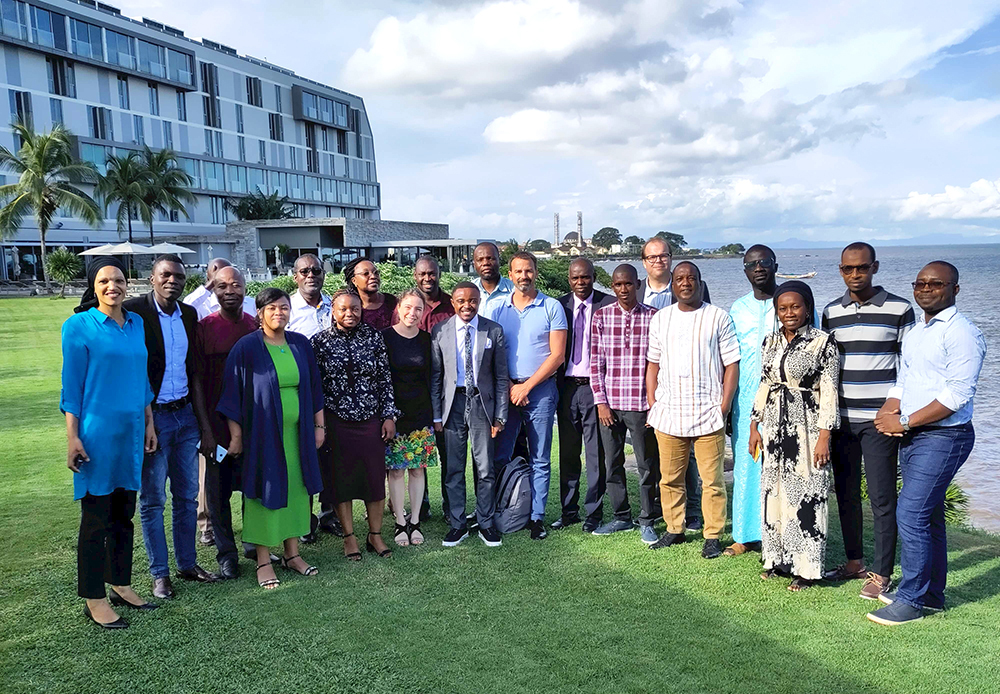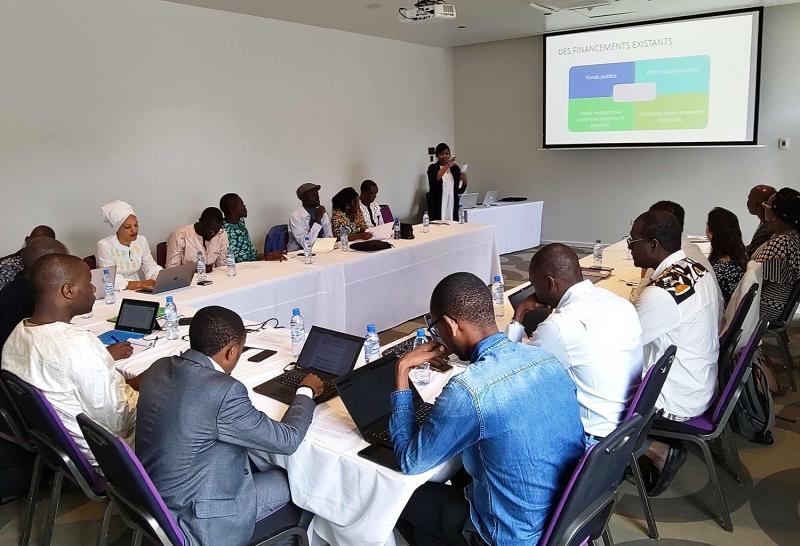What are we Learning from Young Researchers in Francophone Africa?

In late August 2023, a GDN team met five of its grantees in Conakry, for a two-day discussion. The objective of the meeting was to co-design a regional research fund for young researchers in Francophone Africa. The result of that discussion, and of many more virtual meetings that followed the meeting in Guinea, is the call currently advertised on GDN’s website and social media channels. (reminder it closes on February 28, 2024).
Conakry was where we discussed things such as how to define ‘young researchers’, what ‘research’ means to this group, and why competitive funding is important to them. Some of the conclusions were somewhat solidly intuitive. Yet, many funding schemes across the continent seem to ignore these aspects. Here are a few:
Age is irrelevant when talking about ‘young researchers’. This might be true universally (some people start PhDs in their 50s, many in their 30s), but it is particularly true for Francophone Africa, where the timelines of degrees is challenged by a number of factors, not last strikes. Any funding opportunity that sets an age limit not only might fail at targeting the researchers it wants to support, but it also reveals limited knowledge of the context and working conditions shaping research in Francophone Africa.
Despite a progressive alignment with the ‘LMD’ system (the Bologna process ‘license-master-doctorate’ model), degree structure and the timelines of research training and early experience vary significantly across the region. In the Democratic Republic of Congo, undergraduate and master’s degrees take eight years, and typically include research training, a dissertation, and some hands-on research experience. In other countries, like Senegal or Benin, a master’s degree can be obtained within five years, without necessarily much exposure to research theory, methodology or fieldwork. Targeting young researchers in the region requires flexibility in eligibility criteria, when it comes to the academic degree required.
Doctoral enrollment is not a limit for pursuing independent research funding. An independent research project can be linked to a doctoral thesis, contribute to it substantially, while also following a research funder’s own rules without being subsumed by the doctoral degree. Most importantly, it can boost the capacity of a young researcher and their integration into professional research. A grant to a young researcher enrolled in a PhD does not need to be a doctoral scholarship.
The young researchers we interacted with, over two days of passionate discussions, were the ones who put on the table the importance of interdisciplinarity, the importance of working on applied topics and think about research use, and networking. For young researchers, these should be among the objectives of the ideal research fund dedicated to them. Senior researchers seemed more concerned with job placement and publications, replicating the barren mechanics of academic life they often criticize.
Research funding alone is not enough, in one case or the other. Additional support can and should take the form of:
- Project design and management support
- Scientific mentoring
- Career development mentoring
- Structured support and clear incentives to engage non-research stakeholders in research design and implementation
- Support with research communication and uptake
- Opportunities to engage with peers and senior researchers throughout the research project
- Help accessing information regarding additional funding opportunities
- And more…

These additional ‘services’ will be critical to building the young researcher of the future, and it should not be a surprise to anyone that currently these are not available to them. Funders can play a key role in changing expectations regarding what should be included in the minimum offer of research funding.
We also discussed where research is undertaken. University-based researchers are skeptical about the authenticity and rigour of researchers working in think tanks. Yet, they acknowledge that think tanks are important employers (increasingly so) for young researchers in Francophone Africa. The skepticism is, in part, justified. Academics join or create think tanks to access funding for consultancies or short-term research projects, generating extra revenue (a common strategy given the low level of remuneration of academic positions in many countries). This is only possible outside of the stringent administrative rules that run universities. Only research-intensive universities, however, can make it possible for researchers to pursue long-term research agenda, and build research communities. At the same time, many think tanks are created by young researchers, to be able to do research at a stage in their career where they are not given space or leadership in the mainstream academic milieu. Further, the variety and plurality of the think tank sector is mesmerizing, and many produce excellent research work. We need to build bridges between young researchers employed by think tanks, and young researchers employed by universities, around shared criteria of quality, else the low quality of research done in think tanks, much like the presumed irrelevance of university-based research, will continue to be a self-fulfilling prophecy.
Perhaps most surprisingly, there is a dearth of statistics on young researchers, especially in the social sciences. Efforts such as INASP's Voice of Early Career Researchers in the South 2023 report exist but require additional funding and effort to generate comparative and representative data. Initiatives like GDN's Doing Research initiative provide a model for developing an evidence base to inform discussions about the future of research in our countries, and we know firsthand how hard it is to fund evidence generation on the sector.
In summary, strengthening the next generations of researchers in Francophone Africa requires a nuanced understanding of their diverse contexts and challenges, coupled with comprehensive support and a commitment to building bridges across research sectors. Additionally, investing in robust data collection efforts is vital to inform evidence-based strategies for the future of research in the region. Funders have a huge role to play, by funding this evidence base, and by using it to design their own funding windows (as I started discussed with some colleagues working in a funding agency in a recently published Policy Brief).
